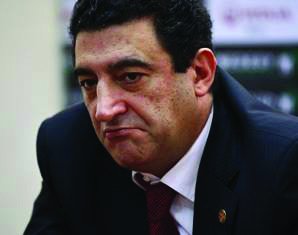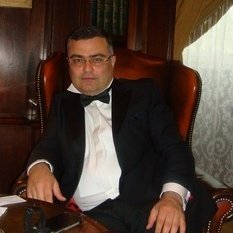A massive leak of offshore data exposing the hidden wealth of the world’s elites has implicated figures from the South Caucasus.
The Pandora Papers are a cache of 11.9 million files that unveil how wealthy individuals hide their income and assets from taxation in offshore jurisdictions, or tax havens. The files, described by the Guardian as the “biggest trove of leaked offshore data in history,” reveal a complex web of offshore companies and corporate service providers that conceals the movement of hundreds of billions of dollars around the world every year.
The Pandora Papers include data regarding 35 world leaders, including current and former presidents and prime ministers, and 300 other public officials in over 90 countries. Government officials are termed “politically exposed persons” (PEPs) because their proximity to public funds places them at a higher risk of money laundering. The files reveal how service providers have assisted corrupt and authoritarian leaders in hiding their wealth overseas without subjecting the source of their money to scrutiny.
While the Panama Papers and Paradise Papers previously revealed massive networks of offshore companies, the Pandora Papers are unprecedented in their scale and scope. The Organized Crime and Corruption Reporting Project (OCCRP) wrote that the Pandora Papers end the “idea that abuses of the offshore system are the work of a few bad apples.” Instead they “expose a vast and often interconnected system that is feeding crises and discontent across the world.”
The files were leaked to the International Consortium of Investigative Journalists (ICIJ) in Washington, D.C., which shared access with over 600 journalists worldwide.
The Pandora Papers implicate Armenian businesspeople in an international network of tax havens. According to an investigation by Hetq (a member of the ICIJ), two Armenian mining companies were registered in offshore jurisdictions.
In October 2012, British investors released a statement in Haykakan Zhamanak (the newspaper owned by the family of PM Nikol Pashinyan) that they planned to launch two mining projects in 2013—the Bazum iron ore mine in the Lori province and the Azatek gold-polymetallic mine in the Vayots Dzor province. The investors, including former member of British Parliament Sir Tony Paldry, would contribute $400 million to the projects through Surart Ltd. and VaykGold Ltd.

Surat Ltd. and VaykGold Ltd. were founded by Vardan Ayvazyan, a former Republican MP who also served as the Chairman of the Parliamentary Standing Committee of Economic Affairs (2007-2017) and Minister of Nature (2001-2007).

The Armenian Agency for State Register of Legal Entities listed Ayvazyan in 2012 as the owner of VaykGold Ltd., which came under the management of Coeur Gold Armenia Ltd. in 2014. However, as revealed by the Pandora Papers, at the time of the Haykakan Zhamanak announcement VaykGold Ltd. was managed by Coeur Gold Armenia Ltd., which was founded the previous year in Seychelles by Tbilisi-born British citizen George Howard Richmond.
Sir Paldry told the ICIJ that he had no recollection of meeting Ayvazyan or knowledge of the newspaper announcement.
In 2011 Coeur Gold Armenia Ltd. and Bazum Steel Ltd., which is based in Belize, briefly became shareholders in Surart Ltd., which was acquired wholly by Bazum Steel Ltd. two years later. According to Armenia’s State Revenue Committee, Surart Ltd. has suspended operations, and no company has the right to explore the Bazum iron ore mine. However Ayvazyan’s relatives founded another company, Iron Mining Ltd., in 2016, which was granted a permit the following year from the Ministry of Energy Infrastructure and Natural Resources to mine at Bazum.
In 2021, VaykGold Ltd. signed a contract with the Ministry to develop the Azatek mine. In 2018, the Prosecutor General’s Office opened a criminal case investigating whether the license was issued illegally. The office also determined that a mineral extraction in 2017 had caused significant damage to the subsoil and its minerals. Armenia’s Investigative Committee charged Ayvazyan and Ashot Hovhannisyan, the company’s co-owner, with malicious evasion of taxes. The charges were later dropped, yet the company’s right to operate the Azatek mine was terminated by the Ministry of Territorial Administration and Infrastructure. Hovhannisyan has applied to Armenia’s Administrative Court to invalidate the order, and the trial is ongoing.

The most damning revelations in the Pandora Papers connected to the South Caucasus involve President Ilham Aliyev of Azerbaijan, whose relatives were revealed to own nearly $700 million in London real estate, acquired through an interconnected network of 84 secret offshore companies that the family has owned since 2006.
While it was previously known that the Aliyevs own millions of dollars worth of property abroad, the British holdings uncovered by an OCCRP investigation, including luxury apartments, historical buildings and commercial developments, eclipse prior findings.
Aliyev’s son Heydar acquired his first building for $48.9 million in 2009, when he was only 11 years old. The strip of commercial property in London’s exclusive Mayfair neighborhood was owned by Mallnick Holdings S.A., set up in the British Virgin Islands, and secretly handed over to Aliyev’s young son.
By the time she was 19 years old, Aliyev’s younger daughter Arzu Aliyeva was the shareholder of Strahan Holding and Finance, an offshore company that acquired three apartments worth $9.7 million in the upscale London district of Knightsbridge.
Trident Trust Group, the source of the largest tranche of files in the Pandora Papers numbering over 3.75 million, commissioned a British due diligence firm to investigate Arzu’s background. The firm concluded that “any transaction involving her should be subject to enhanced and ongoing scrutiny and verification.”
“We draw our client’s attention to the widespread and sustained allegations of corruption against the subject’s father, Ilham Aliyev, and the apparent widely held opinion that any funds held by President Aliyev and his family have been accumulated as a direct result of his position as president of Azerbaijan,” the report reads.

By that point Trident Trust had already incorporated at least 16 offshore companies for Arzu Aliyeva. That year, Arzu’s older sister Leyla Aliyeva became the owner of an offshore company that held a large office building near London’s world-famous Regent Street, while Heydar became the landlord of a Michelin-star restaurant, an art gallery and the head office of Conde Nast.
In response to an inquiry from OCCRP, a representative of Trident Trust wrote that “each of Trident’s trust and corporate services businesses is regulated in the jurisdiction in which it operates and is fully committed to compliance with all applicable regulations. Trident routinely cooperates with any competent authority which requests information.”
The Pandora Papers connect the Aliyevs to the British crown estate, which purchased an office and retail property in Mayfair for over $90 million in August 2018. Money laundering investigator Dylan Kennedy told the Guardian that if the source of funds is found to be questionable, the property sale to the crown estate is the “pinnacle of legitimization.”
The origins of the money used to buy these properties is unclear. However, reporters did find that at least eight of the companies, registered in the British Virgin Islands, received millions of dollars from laundering and transfer systems including the Azerbaijani, Russian and Troika Laundromats. The Azerbaijani Laundromat is a multi-billion dollar secret slush fund, likely connected to the Aliyev family, used among other things to purchase silence from European politicians regarding Azerbaijani human rights abuses.



Thank you for your investigating journalism. Proof positive that the corruption in Armenia is beyond any level of understanding. To invest in an Azeri owned scheme to hide funds has to be the ultimate of evil.
Huh, how did you firm that conclusion? Perhaps you should reread the article. Armenian corruption was not involved with Aliyevs. These were two separate matters both deplorable.
When the former Armenia Presidents are in personal financial partnership with the president of Azerbaijan is three any doubt why presidents Kocharian & Sarkisian did not resolve the Karabagh problem? This is treason at the highest level. It would be a disgrace to the Armenian people worldwide if Presidents Kocharian & Sarkisian are not investigated
& brought to justice.
At one time, the Aliyev dictatorship buying assets everywhere may have been valid and worthy of discussion, but not any more. It is laughable in fact when the CROOKS of Armenia caused the destruction of Artsakh.
Herein lies the difference between “Armenians” and Azeris: one set of crooks steal but never gives up claim to land. The other set of crooks steal, but handing away land is part of that process to the other set of crooks.
Now which is FAR WORSE?
Just one SMALL example: Serjhik’s family members, former villagers from Artsakh, own millions of dollars worth of properties all over the world, God knows where.
I guess herding sheep is as lucrative as pumping oil… right Bolshevik Remnants?
Thanks for the interesting article.
@Alice and Sebouh: I read the article you read. Where do you see that it says Armenian officials are investing into an Azeri scheme or that former presidents are in partnerships with Azeris? It says some Armenian guy had mines on offshore entities and was charged with tax evasion and the charges were later dropped. If you know anything about business, then you’d know that offshore registration of business is a common and acceptiabke business practice. Hiding personal assets on offshore assets for the purpose of tax evasion is not legal.
Then the article goes on about Aliev family assets.
Your gaslighting tactic of conflating two unrelated topics is misleading and unacceptable. Why are are using this forum to create and perpetuate lies?
That’s exactly right.
Will Aliev be reelected after such revelations?
Thank you, Ms. Avedian, for an informative article. Glad to hear that the license to operate the Azatec mine was terminated. But it is mind boggling as to why the tax evasion charges against Ayvazian and Hovhannissyan were dropped. I hope these findings will lead to some serious prosecutions in the near future. When the Panama papers surfaced, though, the only person who paid dearly with her life was the investigative journalist Daphne Galizia.
I suspect that Serge and Kocharian being heavily involved in corruption schemes contributed to losing the war and Artsakh, but one thing is clear that Pashinyan and his gang were not mentioned in the Pandora Papers in any way. That is something to be proud of. At least they are not corrupt yet.
Huh, how did you form that conclusion? Perhaps you should reread the article. Armenian corruption was not involved with Aliyevs. These were two separate matters both deplorable.